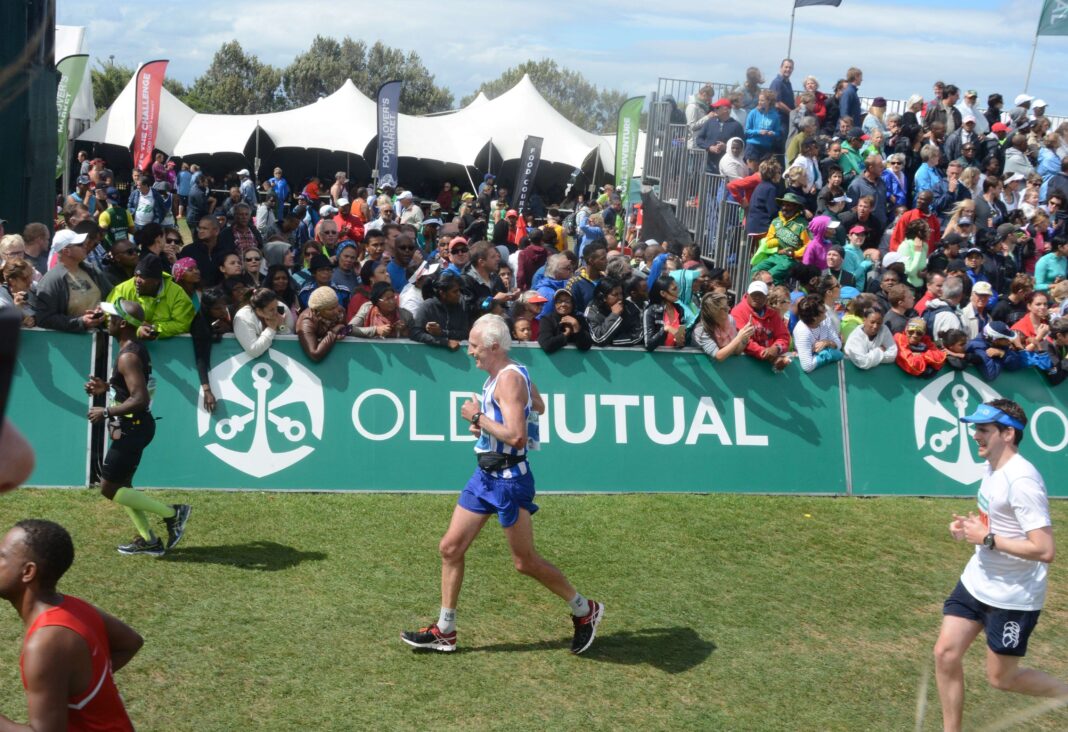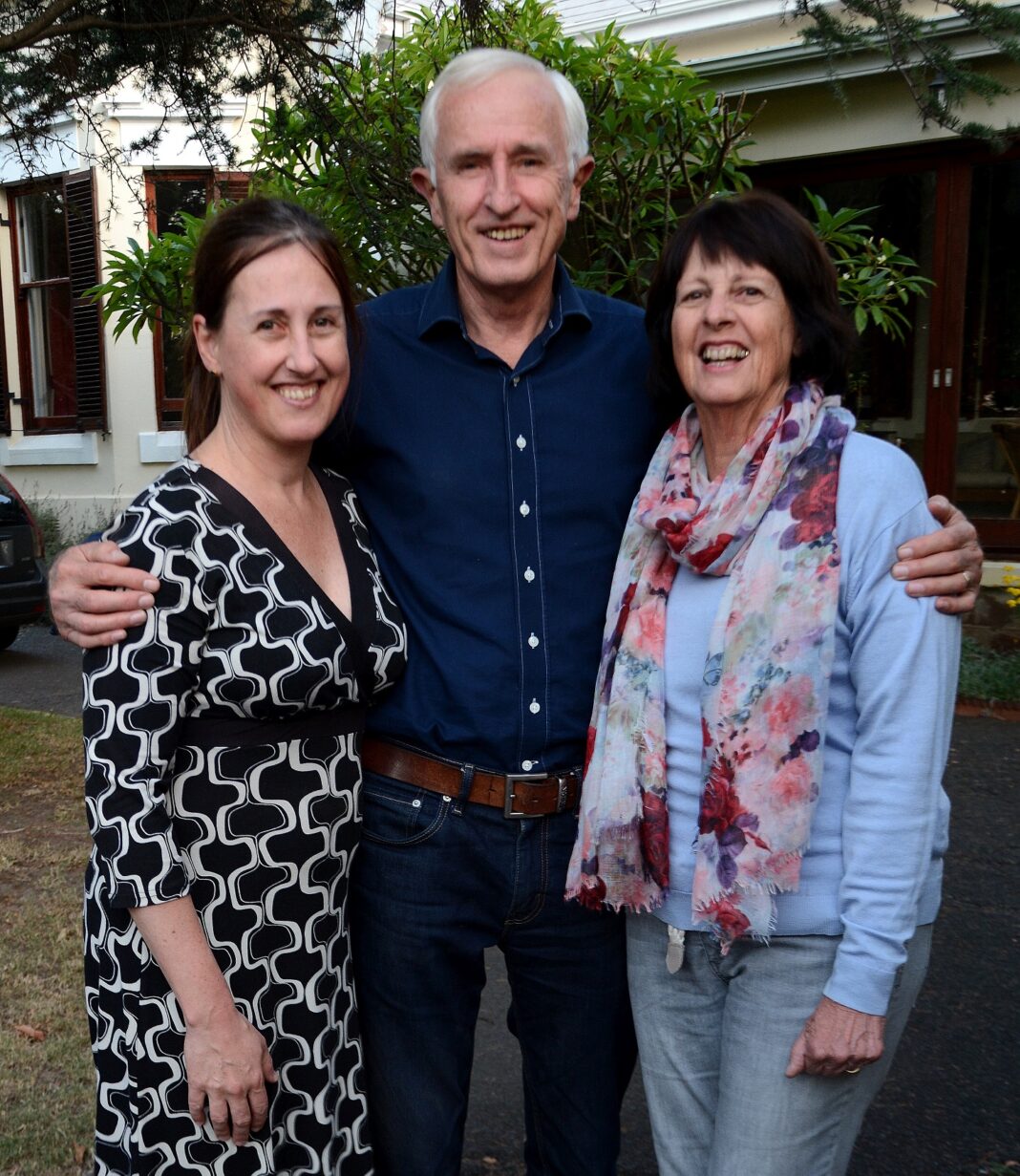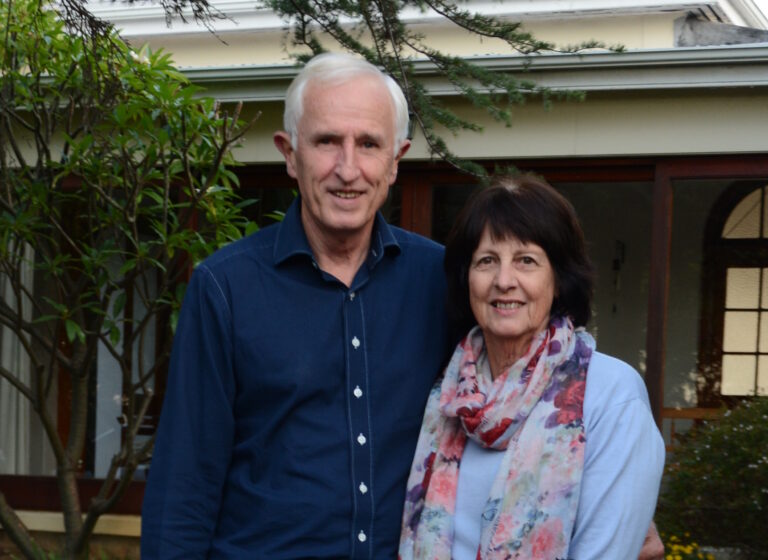Eric Bateman was a leading South African ultra-distance athlete and physician of global significance

Eric Bateman
The passing of Eric Bateman last weekend came as a shock to the South African running community. One of the leading ultra-marathoners in the country in the 1980s, Bateman won gold medals at both the Comrades and Two Oceans Marathons among many other distance-running accolades, and he was just one of two athletes, along with Bruce Fordyce, who could boast a complete set of Two Oceans Marathons Medals – from gold to blue.

Bateman succeeded in many areas of life, as husband and father to five children (and grandfather to eleven), in both the practice and teaching of medicine (he was UCT Professor Emeritus in pulmonology and medicine at the time of his passing) and in athletics.
His strong faith in God provided a spiritual dimension which anchored his full and multi-faceted life.
Bateman was regarded as a world leader in his field of medicine, founder of the UCT Lung Institute, a Fellow of the Royal College of Physicians, an Elected Fellow of UCT, a Founding Fellow of the European Respiratory Society and a Member the Board of the Global Initiative for Asthma (GINA). He served as President of the South African Thoracic Society (which awarded him Honorary Life Fellowship) and served on the World Health Organisation’s Executive of the Global Alliance Against Chronic Respiratory Diseases.
He had an A-rating for research (NRF South Africa) on the treatment of asthma, chronic obstructive airways disease and tuberculosis, and community-based interventions to improve the care of patients with chronic respiratory diseases and won too many national and international awards to mention.
Remarkably Bateman remained active in his profession, continuing to share his knowledge in the field at international conventions around the world. He was due to fly to yet another conference three days after his sudden passing following a heart operation and he remained physically active until the end.

“Dad never made retirement a goal” one of his children remarked, and there is no doubt that he lived a full and energetic life till the end.
Bateman’s athletics ability was apparent from his school days at Clapham High in Pretoria, although he initially had little idea he could run. “I entered a race or two in my first year in high school and took to it quite well, competing in track and cross country,” he recalled when reflecting on his athletics career recently.
‘Quite well’ took Bateman to Victor Ludorum in his matric year at Pretoria High, showing his versatility by winning the high jump and taking a top three in the 200m and hurdles races.
On moving south to the University of Cape Town to study medicine in 1965, Bateman joined the UCT athletics club, where he was immediately drafted into the A team under legendary captain, Jack Penfold, who lent his name to the well-renowned “Jacks” route in Newlands Forest.
Bateman’s versatility was not confined to athletics, however, and Bateman’s passion for rugby saw him playing matches on Saturday mornings before competing in cross-country in the afternoons!
Bateman quickly became a significant part of UCT athletics during his undergraduate years, where his natural talent and his mental strength proved important strengths. He was proud to be part of UCT’s team in the intervarsity road relay team which in 1967 beat the mighty Stellenbosch University, where top marathoner, Ferdie le Grange, ruled the roost.

What set Bateman apart was his continual improvement and longevity as an athlete. Almost twenty years after competing for UCT in athletics competition as an undergraduate medical student, Bateman, was chosen to be part of a star-studded UCT track team which set a world record of 293 miles 1735 yards for the 24-hour track relay at Green Point. Athletes competed in teams of ten, racing mile intervals on the track before handing over to a teammate and continuing for 24 hours.
Now a professor at UCT’s medical school, Bateman’s 24 hour relay teammates included the likes of sub-4 minute milers Ricky Robinson and Greg Liefeldt.
Last week, Liefeldt recalled that day. “Our running careers overlapped briefly, and Eric was a key member of the 1981 UCT team in that ‘crazy’ event, the 24-hr relay, more than holding his own as an (older) marathon man (average time of 5:00,1 for his 31 separate miles) among a group of largely young student track runners as we all took turns to churn out mile after mile. Certainly Eric was somebody who set a very high bar as a runner, a physician, an academic, and (above all) a real gentleman!”
That was not the only world-record Bateman achieved at the 24-hour relay. In 1985, he joined VOB teammates Bruce Matthews and Graeme Dacomb to achieve a record for three-man teams, where the athletes enjoyed little more than ten minutes recovery time between sets.

Bateman regarded his 89km Comrades (1984) and 56km Two Oceans (1985 and 1986) gold medals and his gold medal and age-group title in the national marathon championships in 1989 as his running career highlights.
In the latter, which took place in Port Elizabeth in February 1989, Bateman overtook race favourite, Pretoria athlete, Paulus Masilela, just 2km from the finish and held on for a memorable victory.
Bateman achieved success as an athlete on just a fraction of the training as his competitors, driven partly by a determination not to compromise his professional and family commitments and partly by his training preferences, which were governed by ‘shorter and faster’ rather than ‘longer and slower’.

“I always believed in the benefits of a balanced lifestyle,” Bateman explained, “and I have fitted my running into my family priorities and academic pursuits, not the other way around. In the 80’s, I was competing against athletes who were eating, thinking and sleeping running. I wasn’t, but maximised my time training, putting quality before quantity, and never training slower than 3 min 30 sec per km.
“But I did step up my training for short periods for specific races after (fellow marathon runner) John Brimble came to me one day in 1984 and said ‘Eric you’re a fool! If you trained properly, you might even achieve gold at Two Oceans and Comrades. You only have a few years of realising your potential as an athlete and you can go back to publishing papers for decades afterwards!’
“I’d been working about a 12-hour day as head of department at that stage, including night calls, so my training distance was minimal. But I took John’s advice and although I only managed to fit in a block of 8 weeks, it made all the difference at the 1984 Comrades.”
While many of his competitors at Comrades and Two Oceans were running closer to 200km per week, incredibly Bateman was getting by with just 50-60km per week. After being encouraged by his wife Mary and John Brimble, Bateman managed to increase to an average of 87km per week ahead of the 1984 Comrades, topping 100km per week just twice.
But the new training regime had the desired outcome and Bateman raced home in the 1984 ‘down’ Comrades Marathon in 9th position in 5:50:37 to win his gold medal, crossing the line just over 20 minutes behind the winner, Bruce Fordyce.
Bateman told an amusing story about his next race in the ‘down’ Comrades, in 1986. “I had adopted a similar training programme I had used to prepare for the 1984 race, based on running an 18km route six days a week. But I picked up a cold and was ill for the week leading up to the race.
“I’d accepted that I could not race Comrades that year but finally felt well enough on the Friday – the day before the race – to run my 18km route again. I recall feeling quite strong that morning, but I had no thought of running Comrades, and I arrived at work at 8am.
“My PA, Avril Singer, was my biggest running fan without being a runner herself and she saw I’d been back training again that day. She said to me ‘Prof, if I can get you on a plane today will you go up and run?’ I knew all the planes to Durban were full and that it would be impossible, so I agreed and went to my office.
“At 9am she rang me to say ‘you’d better move quickly as your plane leaves at 11am!’
“I was completely unprepared, nothing was packed and I had nowhere to stay in Durban. But I went home, gathered my kit and left a ‘Gone to Comrades!” note for Mary.
“I pitched up next morning and finished 12th , just three minutes slow than my 1984 time!”

Bateman had few regrets in his running career, one being his opportunity to record a sub-2 hr 20 min marathon being blown away during the 1987 national championships in Port Elizabeth. “I was on course for a sub-2:20 before turning into a strong south-easter with 10km to run.” Bateman nonetheless turned in his personal best time of 2 hr 22min.
Bateman continued to compete with distinction as a master athlete, completing no fewer than 35 Two Oceans Marathons, including an impressive 4:41:16 at 63 years in 2010 (second in his age group) and his last in 2018, at 71 years, clocking 5:41:11 to again finish second in his age group.
In his latter years Bateman was hit with significant health challenges, losing almost half his lung capacity in an operation to stave off lung cancer in late 2018.
Undaunted, Bateman was determined to race Two Oceans again and set out to regain his fitness. “In October 2018, before the op, I ran the 5km Park Run in Rondebosch in 24 min 39 sec. In February 2019, after the op, I could only manage 30 min 48 sec,” Bateman recalled.
“I had to re-learn running without full lung capacity – rather like someone losing an arm or a leg. It was important to come to terms with myself in my new condition. I started with just walking and then graduated to run-walks. Although I felt I was running fast, I was only managing 7 minutes per kilometre!
“Several doctors said that my operation would end my running career, but I’ve learnt never to take the prognosis of doctors too seriously, particularly if they are not runners!”
Remarkably, Bateman completed the 2020 Peninsula Marathon in 4 hr 36 min on a training base of around 25 km per week to qualify for the Two Oceans Marathon two months later. But sadly Bateman never had the opportunity to meet that new challenge as the race was cancelled for two years due to COVID.
Bateman was 77 at the time of his death and he leaves his wife Mary, their five children, Andrew, Kath, Rachel, Stuart and Alison and eleven grandchildren.
A memorial service will take place at 10h00 on Saturday 1 February at Christ Church, Kenilworth.